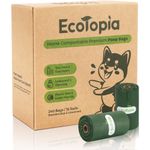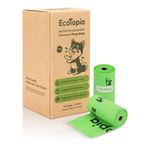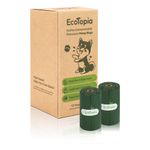Breaking Free from Plastic: The Economic and Environmental Benefits of Compostable Alternatives
Plastic has woven itself into the fabric of modern life, but its convenience comes at a steep environmental and economic cost. With global plastic production exceeding 400 million tons annually, and less than 9% of it recycled, the world faces a mounting crisis. However, compostable alternatives offer a sustainable pathway forward, benefiting not only the planet but also the economy.
The True Cost of Plastic Pollution
The United Nations Environment Programme (UNEP) estimates that plastic pollution costs the global economy over $13 billion annually, primarily due to its impact on marine ecosystems. Plastic harms biodiversity, disrupts industries like tourism and fishing, and creates health risks through microplastics.
A shift toward compostable alternatives can help mitigate these costs. Unlike traditional plastics, certified compostable products, such as those meeting EN 13432 or ASTM D6400, break down into natural components, leaving no harmful residues behind.
Compostable Products and the Circular Economy
Compostable alternatives fit seamlessly into a circular economy by turning waste into a resource. For example, food waste combined with compostable packaging can be processed into nutrient-rich compost, reducing landfill volumes and improving soil health.
Economic benefits also arise from this model. A 2019 study by the Ellen MacArthur Foundation showed that transitioning to a circular economy could yield savings of up to $700 billion annually across sectors such as packaging, transportation, and agriculture.
Policies Supporting Compostable Solutions
Global policies are increasingly supporting compostable alternatives. The European Union's Circular Economy Action Plan emphasizes the importance of biodegradable materials, while countries like South Korea and Canada are actively reducing single-use plastics. Such policies create a fertile ground for compostable products to flourish.
A Call to Action
At EcoTopia, we are committed to offering certified compostable products that meet the highest standards, ensuring they contribute positively to the environment. By choosing compostable options, consumers and businesses can reduce pollution, save costs, and invest in a sustainable future.





